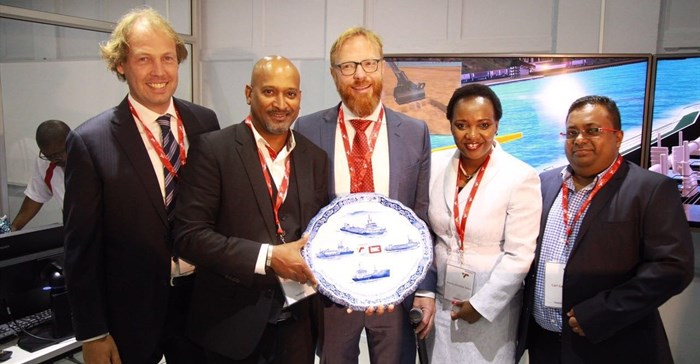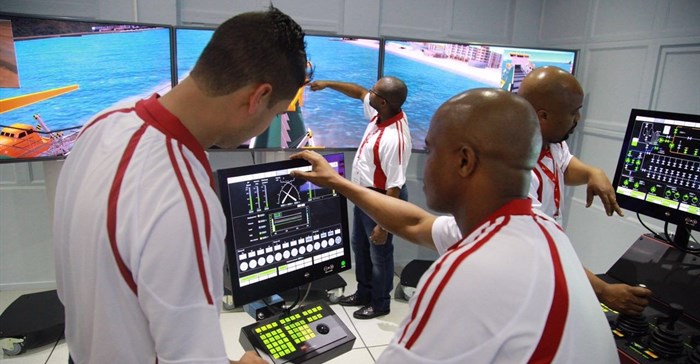
The high-tech simulator – based at the MSoE’s Langeberg Road premises – will aid in building dredging capability in South Africa. Dredging is specialised underwater excavation that helps to keep ports and harbours safe and navigable and is a critical aspect of port development.
Transnet anticipates that over the first three-year period, 50 students will complete training on the simulator as part of a holistic dredging training programme and could find work in Southern Africa or with international dredging contractors.
TNPA chief executive, Richard Vallihu, said the simulator would enable TNPA to support ports in Southern Africa to develop marine skills and grow their economies. “Through this acquisition, we can create jobs in line with the Government’s Nine-Point Growth Plan. Among the key focus areas of TNPA’s R56 billion-plus investments under the Transnet Market Demand Strategy (MDS) are creating capacity ahead of demand, maintenance upgrades, skills development and job creation. We are, therefore, striving to build our own capabilities by developing mission-critical skills that will help us to cater for the needs of the Southern African port system. Instead of sending staff overseas for dredging training we can now do this locally through the dredging school to be fully operational by 2017.
“A number of regional ports are also ramping up plans to expand port capacity including major dredging projects, so we would like to be in a position to provide human capacity for that as well in the near future,” he said.
The multi-million Rand simulator mimics the control panel of an actual dredging vessel, complete with environmental simulation of weather conditions, sea states, and soil types. This provides realistic training situations while eliminating the risk of accidents, production losses, damage and injuries that could occur while training in real life.

TNPA, the MSoE, and Royal IHC have packaged a special dredging training programme that incorporates 12 weeks of classroom theory, eight weeks of simulation training and six months of practical training onboard a real dredging vessel.
The simulator will help to hone critical technical skills required for professions such as pipe operators, dredge masters, and dredging managers. The first intake of trainees - six pipe operators – will commence training in January 2017.
Acquisition of the simulator emanated from Royal IHC’s 25% supplier development contribution within the contract to build TNPA’s Ilembe trailing suction hopper dredger. Ilembe was the fourth dredger built by Royal IHC as part of TNPA Dredging Services’ fleet replacement programme in excess of R2 billion.
TNPA and Royal IHC had signed a memorandum of understanding to enhance regional port development, covering skills development, research and development, the exchange of technical maritime dredging expertise and dredging infrastructure development.
Royal IHC provided bursaries and training to local South African training facilitators from the MSoE and TNPA Dredging Services. A special Dredging School is also in the pipeline.
The company further ensured that major parts of the dredging installation of the Ilembe were manufactured locally. A combination workboat/hydrographic survey boat that accompanies the dredger on assignments was also built locally by Nautic Africa in Cape Town, involving sixty people in the production process.
IHC Systems managing director, Rens Klootwijk, said: “TNPA has set out a long-term vision to develop the South African dredging and manufacturing industries, raising levels of operational efficiency and improving the capabilities of those employed in these sectors. IHC is proud to contribute to making this vision a reality by launching our training simulator in Durban and by helping TNPA to set up South Africa’s first Dredging School.”
Built into every capital investment of the MDS, Transnet’s supplier development initiatives aim to create jobs, pass on expertise and develop skills in the local maritime industry – ideals the South African government also aims to achieve with its Operation Phakisa programme which is designed to unlock the country’s Ocean’s Economy.
The MDS – now in its fourth year – aims to enable the effective, efficient and economic functioning of an integrated port system with the infrastructure and capacity to promote economic growth and contribute to job creation.